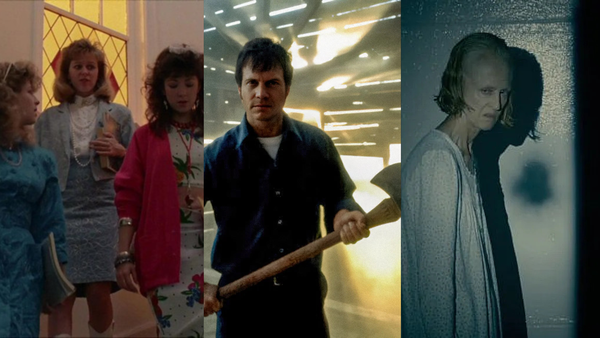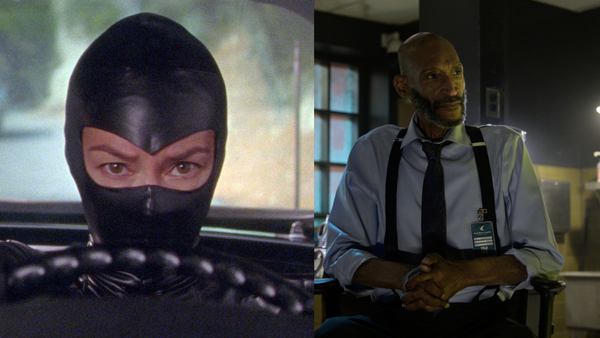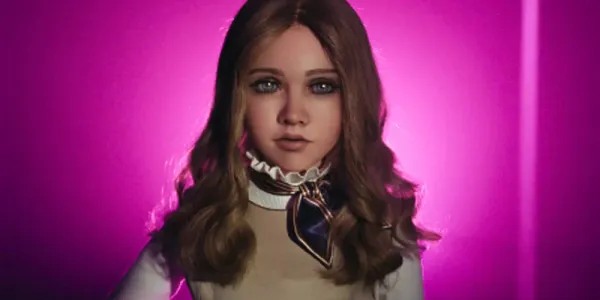Phantom Thread: Brian De Palma's Phantom of the Paradise
Rest in peace and dream, dream it never ends
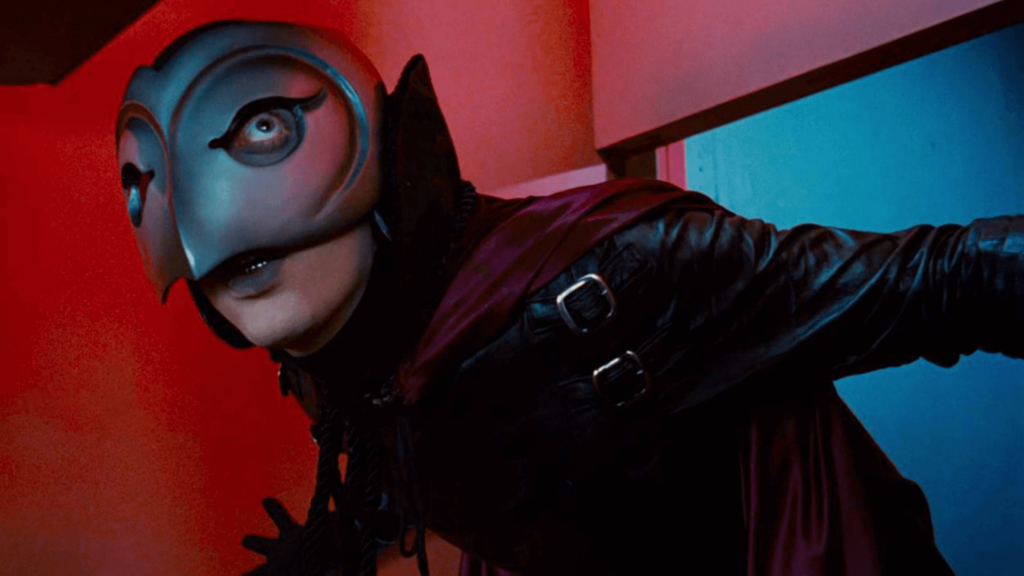
Brian De Palma is one of those filmmakers that I've always enjoyed, and as I've grown older, my appreciation for him and his work has continued to deepen. I have seen enough film bros making their digs at De Palma and his approach over the years, but those "issues" that many have (split diopter, spinning shot, all Hitchcock hat tips — you name it) are the aspects of De Palma's work are the reasons I engage with it even further, especially as someone who also has obsessive tendencies in my own creative output.
This might sound hyperbolic, but I truly believe that Brian De Palma was and is genuinely one of the most thought-provoking filmmakers of his generation. A fearless storyteller who often exploits genre conventions to surprising effect and has created some of the greatest films to ever grace the silver screen, De Palma may be a polarizing figure in Hollywood to some, but it’s hard to deny his talents as a genuinely unique storyteller who pushed boundaries for decades.
And Brian De Palma’s Phantom of the Paradise is the perfect example of his frenzied genius on full display, which is why I love it as much as I do.
Throughout his decades-spanning career, Brian De Palma carved out a reputation as the master of thrillers, but in his early days, De Palma was crafting social satires like Greetings, The Wedding Party, or Hi, Mom! featuring a young Robert De Niro, establishing him as one of the promising new voices of the New Hollywood generation of filmmakers.
Phantom of the Paradise may seem like something of an outlier in comparison to his entire body of work, but when you examine where he was at during this era in his career, De Palma’s manic rock opera feels like a natural progression for the filmmaker who was still establishing his voice and honing his vision at the time.
When it comes to Phantom of the Opera adaptations, Paradise isn't particularly faithful to Leroux's novel, but there are enough thematic bones in place so that anyone who knows the story of POTA will immediately recognize its creative DNA here. In fact, I think it’s the differences between the two that make De Palma’s take all the more fascinating, as he found ways to create a story that may rely on some familiar storytelling elements, but somehow it still feels like a slice of defiantly singular cinematic anarchy all the same that only he could deliver.
From the Desk of The Horror Chick is a reader-supported publication. To receive new posts and support my work, consider becoming a free or paid subscriber.
For the uninitiated, at the start of Phantom of the Paradise, Rod Serling’s opening narration introduces us to the mysterious Swan (Paul Williams), the most powerful producer in the music business and the driving force behind the extremely successful label, Death Records. Swan is preparing to unveil the greatest rock palace the world has ever known, The Paradise, and is looking for a new sound that would be perfect for such a monumental occasion.
Swan discovers an awkward songwriter named Winslow Leach (William Finley) who has written a 200-page cantata based on Faust. As it turns out, it’s just the music that Swan has been looking for, but he wants nothing to do with Winslow as an artist. Swan enlists his right-hand man Philbin (George Memmoli) to steal the naive composer’s music so that he can find a new musical act to perform the cantata at The Paradise’s opening night.
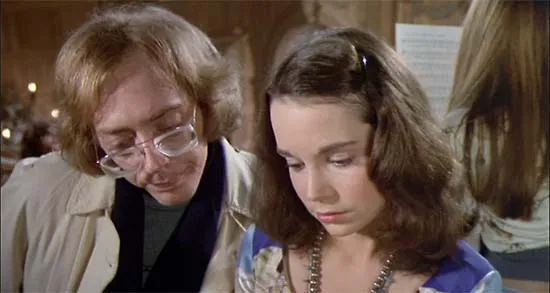
Unsure of what the producer’s plans are for his prized music, Winslow infiltrates an audition being held by Swan, featuring hordes of female singers. There, he meets the charming songstress Phoenix (Jessica Harper, in her film debut), who is looking for her big break. But the tryout goes south for both Winslow and Phoenix as he’s thrown out and she’s attacked by Philbin and his cronies, leaving the composer desperate to confront Swan about his musical thievery.
From there, Winslow’s desperation grows, resulting in Swan having him framed and sent away to Sing Sing, where the prison warden removes his teeth as part of an initiative backed by the “Swan Foundation.” One day, the embattled composer learns that Swan’s ‘50s throwback group — the Juicy Fruits — are set to perform his cantata at The Paradise, and Winslow goes apeshit, breaking out of the prison. In his frantic escape, he heads to Swan’s record pressing facility, where he ends up horribly burned and left with a ravaged voice by one of the machines. Winslow decides to retreat to The Paradise so he can get revenge on all who have wronged him, especially the mythic Swan.
Chaos ensues, and Winslow’s pursuit of vengeance culminates in one of the most audacious rock set pieces ever seen in 1970s, or since.
There’s a lot more to Phantom of the Paradise (some of which I’ll dive into soon) but you can definitely get a sense of the Phantom of the Opera parallels from that brief rundown: there’s a tortured musical prodigy (Winslow), a talented ingenue (Phoenix), a famed venue (The Paradise), the use of “Faust” (the opera that was featured in Leroux’s story) as well as a narrative that is fueled by an avenging angel of sorts.
Oh, and Paradise’s “Carlotta” comes in the form of Beef (Gerrit Graham) who becomes Swan’s musical flavor of the month after he moves on from the Juicy Fruits who get relegated to background performers.
As mentioned, Paradise is centered around the tortured artist Winslow Leach, who stays hidden away from the world due to his deformities and inconsolable rage, but his situation is a bit different than Erik’s (aka the titular Phantom) in Leroux’s story. Erik has been lurking around the Palais Garnier Opera House for years, and he has been making demands of those in charge that must be met or they will have to pay a price. Everyone working at the Opera House fears The Phantom, and his legend looms large over the famed music hall.
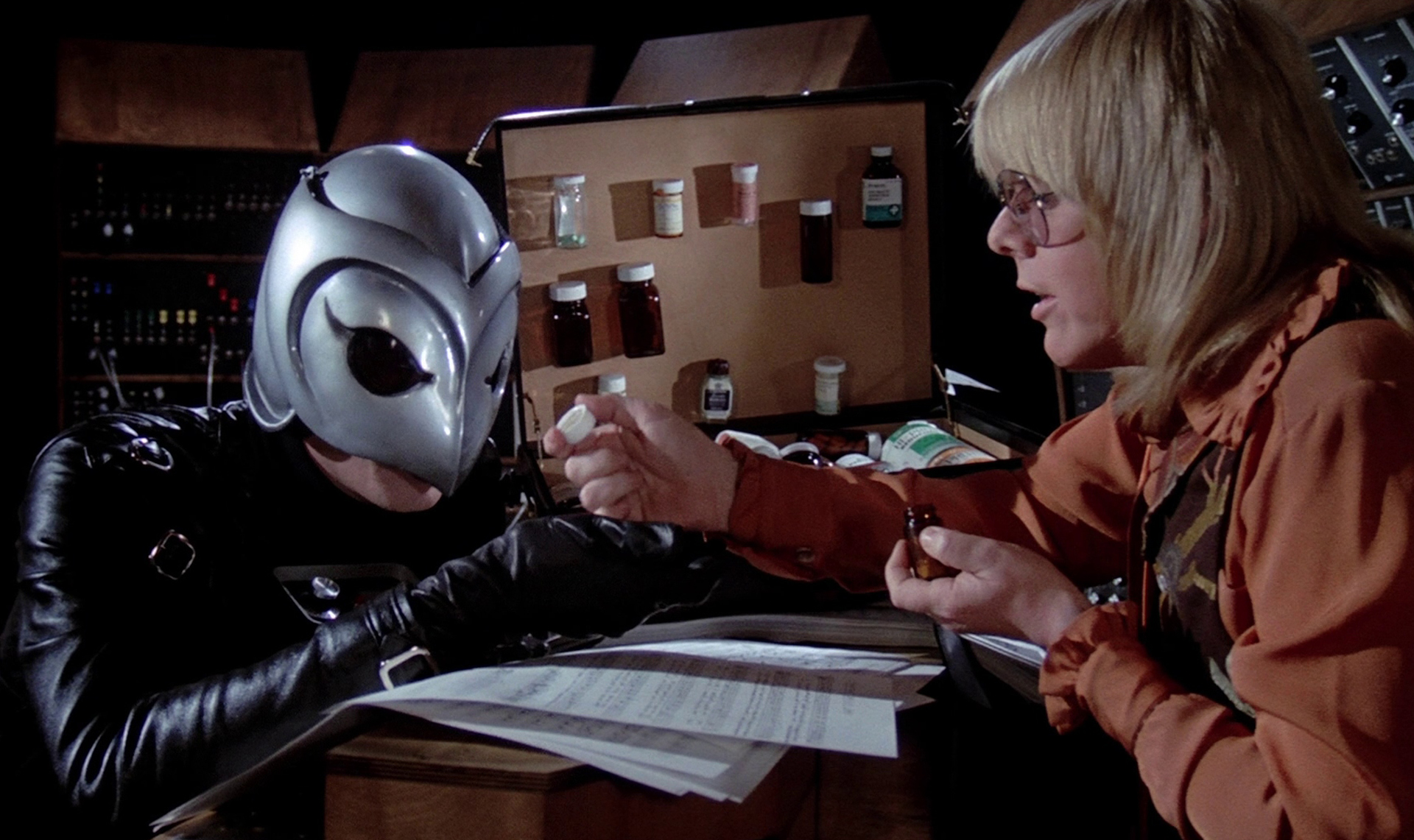
De Palma’s Phantom figurehead is very different. In Paradise, Winslow's existence is known by Swan and to everyone else, the unusual things happening at the titular locale are due to the “vibes being off,” and that’s about it. Initially, there is no Phantom in the eyes of most of the players working at The Paradise. And once Winslow decides to confront Swan, the producer isn’t even phased by his unexpected appearance; the producer is a prime opportunist and sees the re-emergence of the composer into his life as the chance to finish out the “Faust” cantata properly. Swan ends up manipulating Winslow into believing he’ll become the famed musician he has always wanted to be if he sticks around and writes more music.
Winslow, forever driven by the pursuit of his music being adored by the world (something many of us creatives can relate to on some level), agrees to keep writing as long as Phoenix is the one to sing his songs. Swan agrees and tucks the composer away in an electronic studio, pumping him full of drugs to keep Winslow in the ideal creative state so that he can meet the producer’s relentless deadline.
Eventually, Winslow discovers that Phoenix is no longer going to be singing his cantata and that it will be shock rocker Beef taking center stage at The Paradise. In Phantom of the Opera, the titular character wasn't above a little homicide and unleashing pandemonium so that Christine Daae could have her moment in the spotlight.
Murder and mayhem are things that Winslow still needs to build up to in Phantom of the Paradise as it’s extreme line even for him to cross.
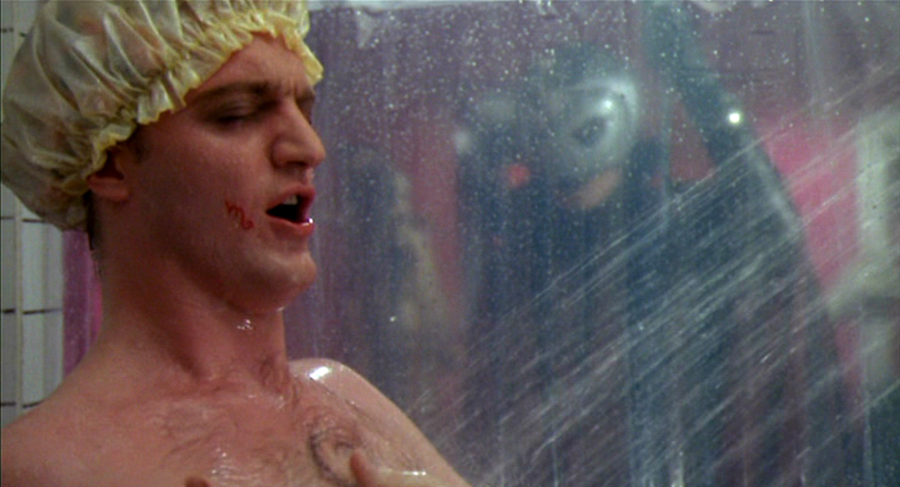
At first, he confronts Beef in the shower and tells him that, "Only Phoenix can sing my music. Anyone else who tries, dies." Beef may not exactly be the world's best musician, but he understands what's at stake after going face-to-face with Winslow, and tries to hightail it to his mother's house instead of performing that night. Of course, Philbin, being a guy who understands that the show must go on or there will be hell to pay, gives Beef some drugs and coaxes him back into the music hall so that the debut of "Faust" won't be delayed.
When the meaty glam rocker takes the stage that night, this pisses poor Winslow off and in pure Phantom-esque fashion, he uses a lightning bolt-shaped neon sign to electrocute Beef in front of thousands of screaming fans. This act is reminiscent of when Leroux's Phantom decides to drop the Palais Garnier's extravagant chandelier on unsuspecting audience members as his way of declaring his dominance over the theater and its owners in Opera.
But for Winslow, control and dominance are both merely illusions throughout most of Phantom of the Paradise, as it is Swan who wields his power over everyone with a heavy, yet subtle, hand. Even though the act of killing Beef causes the producer some momentary grief, Swan is quick to move past his death because his fans think it's all part of the show. He has Philbin rush to get Phoenix out onto the stage to help keep things on track, akin to Christine Daae’s taking over the lead from Carlotta after her performance “croaks” (literally), and the show goes on, much to the delight of the fans in attendance.
And while that decision is partly a gut reaction to the situation, there's also a part of Swan that deep down recognizes just how talented Phoenix is (he abhors perfection in anyone but himself, as we’re told, which is the biggest reason why he decides to use Beef in the first place). In that shocking moment, as Beef’s electrified body is smoldering on the stage, Swan knows that Phoenix’s voice can quell any uneasiness that might be lingering in the air after such a dastardly deed takes place.
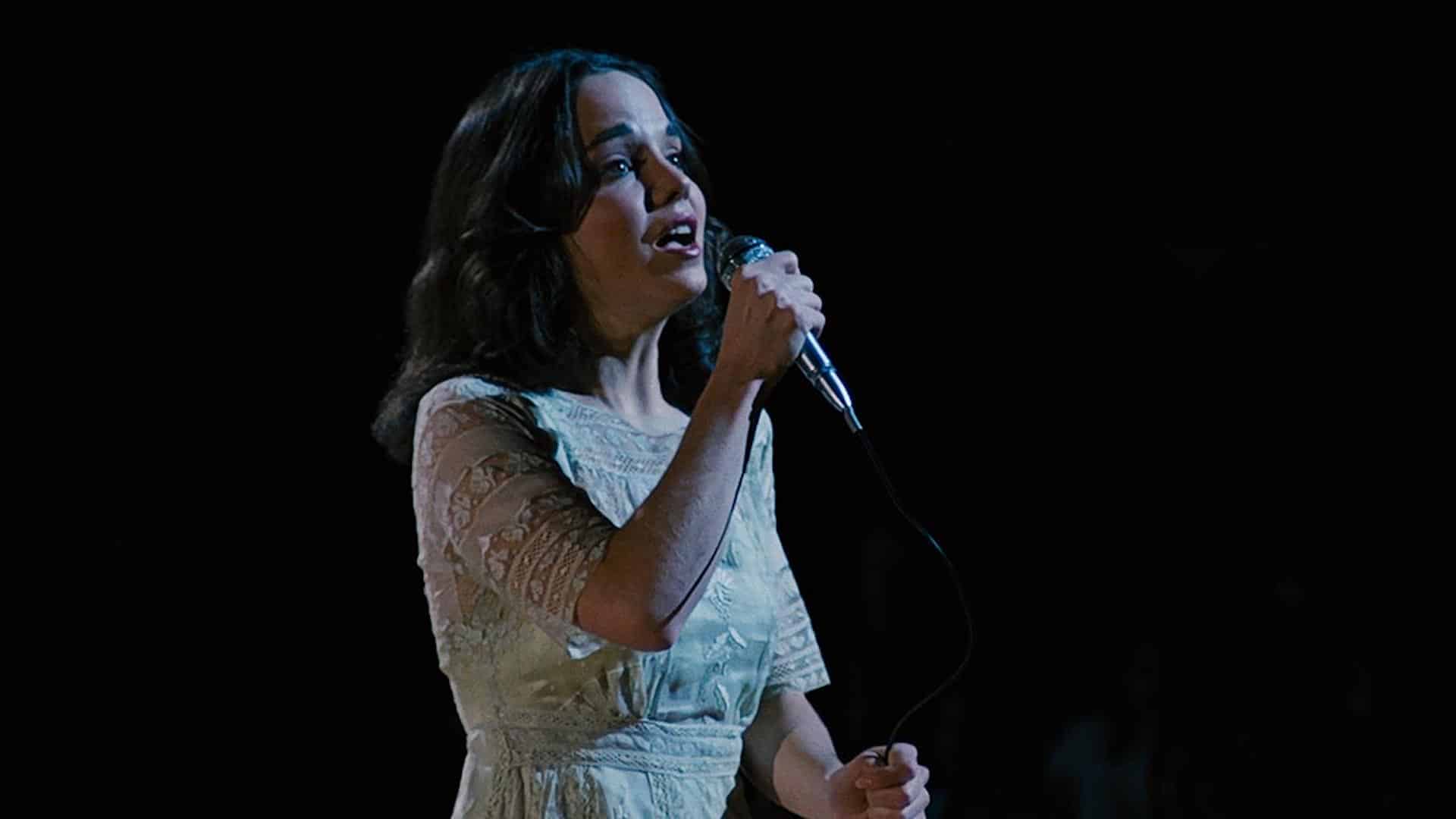
Winslow knows it, too — Phoenix’s vocals have been a soothing balm on the pain of his existence ever since they met at that first rehearsal in Paradise. This is somewhat similar to the shared dynamic between Christine and the "Angel of Music" in Phantom of the Opera. In De Palma's film, it's more of a one-sided relationship that we see between Phoenix and Winslow, especially after she believes that he has died, as it was reported in the news. When he beckons the singer to the roof to try and warn her, Phoenix is hesitant to believe that the masked maniac in front of her is the same shy composer she first met months prior, and leaves in a furious huff.
Now that Phoenix is on course to become an overnight success (akin to Christine’s breakout moment in Opera), her journey takes a dark turn in Paradise as she easily succumbs to Swan’s promises of stardom and signs away her voice (and essentially her life) within hours of her performance after he seduces her at his aptly named mansion, Swanage. Winston sees his lady love in the arms of Swan and loses it, akin to Erik realizing that Christine is in love with Raoul in Phantom of the Opera. But rather than lash out at her or her suitor like Leroux’s Phantom does, Winslow tries to kill himself — a task that he cannot complete due to the fact that Swan owns him, body and soul.
This is a very different dynamic than we saw between Christine and Erik in Leroux’s Phantom of the Opera. Christine’s integrity remains in check from start to finish, even after being kidnapped and eventually forced to agree to marry The Phantom. Somehow, she still has empathy for Erik after he admits that no one had ever let him kiss them before Christine does — not even his own mother. Unfortunately, the same cannot be said about Phoenix, which makes her character’s trajectory in Paradise tragic in other ways.
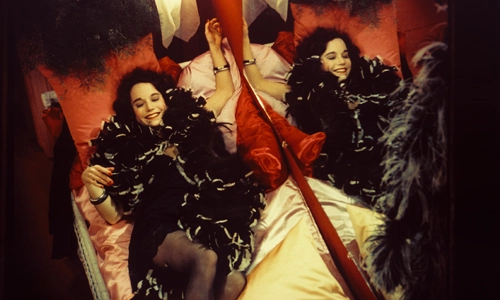
Which brings us to the idea of sacrifice, in both Phantom of the Opera and De Palma’s Phantom of the Paradise. In Leroux’s story, the tenderness Christine shows Erik despite everything he’s put her through is a transformative moment for him, where he’s ready to “die for her, like a dog.” He lets her go and live her life with Raoul and only asks her to promise to visit him when he’s dead to return the ring he gave to her. Ms. Daae honors her promise to Erik, and after he dies “from love,” she returns and buries him somewhere his body will never be found alongside the gifted jewelry.
With Paradise, the story may play out differently between Winslow and Phoenix, but the theme of sacrifice is still front and center. The composer understands that Swan must be stopped at all costs, but is unsure of how to do so due to the producer’s seemingly powerful reach over pretty much everything and everyone around him. When Winslow discovers a tape showing how Swan became the untouchable force that he is and its revelation about how to kill him, he decides to take action.
On that very same night, Swan is set to marry Phoenix live on TV during the epic conclusion of “Faust,” but the producer has more than ratings on his mind: he wants to have the singer assassinated during the ceremony, a heinous act that Winslow thwarts when he attacks the gunman who ends up shooting Philbin instead. Panic breaks out in The Paradise, and Winslow repeatedly stabs Swan to save Phoenix from the producer’s murderous fury, a monumental act of sacrifice on his part because he knows that if Swan dies, he’ll die too. And he does.
I love that in the chaotic final moments of Phantom of the Paradise, as Winslow departs this mortal coil, Phoenix seemingly snaps out of the spell that Swan had cast over her, and she realizes just who the masked figure was and what he gave up for her. The way that Phoenix tenderly embraces Winslow as he dies feels reminiscent of the emotional moment shared between Christine and The Phantom in Leroux’s story and how Ms. Daae returns to mourn the loss of Erik after he dies.
In both of these stories, the women ultimately find freedom through the sacrifices of their respective mentors, as the actions of both Erik and Winslow indicate their realizations that true love sometimes means having to put the needs of those you cherish ahead of your own.
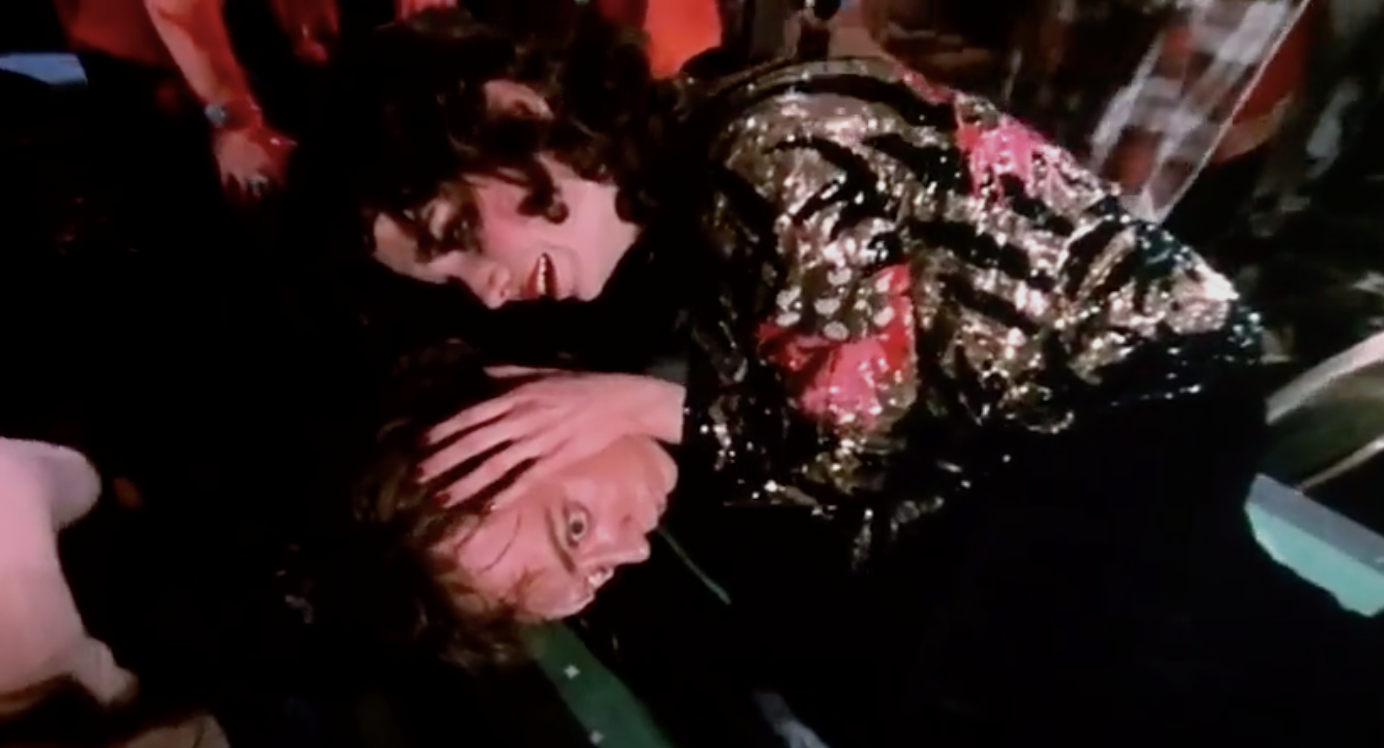
And while there may be a number of differences between Gaston Leroux’s original Phantom of the Opera story and Brian De Palma’s Phantom of the Paradise, it’s evident that both storytellers set out to craft their own timeless tales centered around the themes of love, obsession, revenge, as well as the powerful influence of music over our lives — both good and bad.
